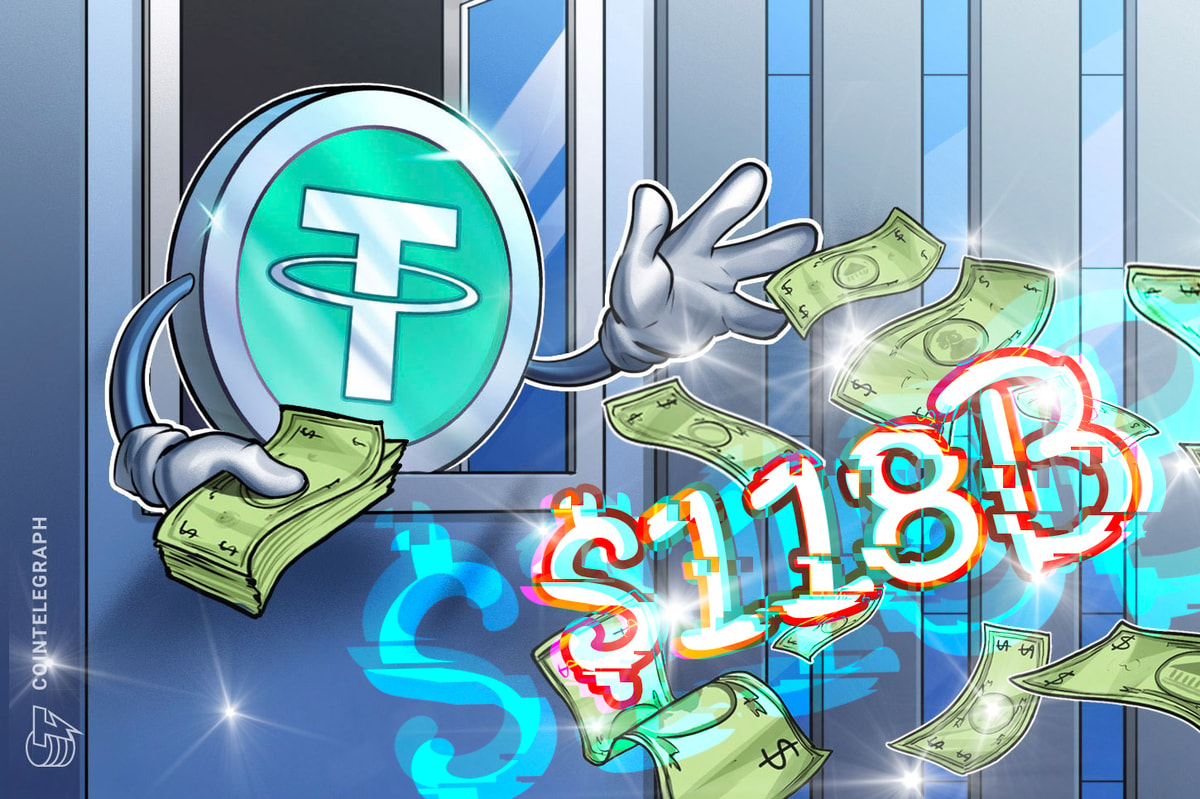Tether’s lack of third-party audits has investors concerned that the $118 billion stablecoin company could face a similar liquidity crisis to FTX.
Investors are becoming increasingly concerned about Tether, the issuer of the world’s largest stablecoin, USDT.
The latest concerns were sparked by Cyber Capital founder Justin Bons sharing concerns that Tether could be a bigger scam than FTX.
Bons wrote on X Post on September 14th:
“(Tether) is one of the biggest existential threats to all of crypto because we are supposed to believe they have $118 billion in collateral without any evidence! Even after the CFTC fined Tether in 2021 for lying about their reserves.”
In 2021, Tether was fined $41 million by the U.S. Commodity Futures Trading Commission (CFTC) for lying about the fact that USDT was fully reserve-backed.
Concerns about the impact of stablecoin giants on the cryptocurrency market have grown recently, after data showed that Tether’s market share had grown by 20% over the past two years, surpassing 75% of the overall stablecoin market.
relevant: Vitalik Buterin Joins Token2049, Highlights Low L2 Fees as a Milestone for ETH
Unlike the FTX collapse, the hypothesized Tether collapse will be caused by banking.
Some of the concerns were sparked by one of the industry’s most notorious black swan events, the FTX exchange collapse, which resulted in the loss of $8.9 billion in user funds.
According to IDA Finance co-founder Sean Lee, FTX’s collapse was due to its inability to process a massive $6 billion customer withdrawal within three days, while Tether’s hypothetical collapse could have been related to its banking partners.
Lee told Cointelegraph:
“Bear market or not, the likelihood of Tether crashing is due to its structural connectivity to the underlying asset and bank rails, not market movements. Otherwise, USDT would have struggled in the last bear market. But in reality, USDC was unpegged because of its dependency on SVB and Signature Bank.”
In May 2022, Tether processed $16.7 billion worth of USDT customer withdrawals in 10 days without any issues.
Meanwhile, Washington Mutual Bank failed to process $16.5 billion in withdrawals within 10 days, leading to the largest bank failure in the U.S. in September 2008.
The Biggest U.S. Bank Failures. Source: Pew Research Center
Others believe Tether is too big to fail. Notably, author and intergovernmental blockchain expert Andy Lian does not expect Tether to face problems, but warns that large centralized entities in general can pose risks to the cryptocurrency space.
“Cryptocurrencies were originally designed to operate without central control, promoting transparency, security, and user autonomy. However, Tether, a centralized stablecoin issuer, exerts significant influence in the cryptocurrency markets due to its widespread use for trading and liquidity.”
Cointelegraph has reached out to Tether for comment.
relevant: Binance denies responsibility for $230 million WazirX hack, urges users to refund
Tether’s business structure and transparency raise concerns.
On September 8, Tether invested $100 million in AdeccoAgro, acquiring a 9.8% stake in the Latin American agricultural giant.
According to Cyber Capital’s Bons, this investment brings the first public disclosure of Tether’s governance structure.
“Tether Holdings’ board of directors only has two members, Giancarlo and Ludovicos. This means that the USDT reserves will still be undivided in 2024 and these two people will have absolute control!”
Lee, co-founder of IDA Finance, also expressed concerns about Tether’s lack of transparency. He wrote:
“Tether is structured as a corporation, and their unwillingness to provide a level of granular transparency that would warrant real trust from the community and institutional players is truly concerning.”
X Post About Tether Thanks. Source: Justin Bones
Despite Tether boasting $118 billion in reserves in a Q2 “independent audit conducted by BDO,” Cyber Capital’s Bons claims Tether has yet to submit its reserves for a third-party audit.
“An “audit report” or “accountant’s report” is not an official audit at all! Despite claims, Tether has never actually submitted its claimed reserves to an unrestricted third-party audit!”
magazine: Bitcoin ETFs Could Face Hacker Threats, Ellison Seeks No Jail Time, and More: Hodler’s Digest, Sept. 8-14

